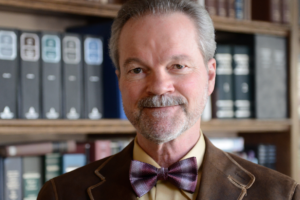http://www.coe.int/en/web/about-us/videos
The current economic and political woes in the European Union, compounded after the Brexit vote, have brought up a distressing question on the viability of the European Union and sustainability of its future. The protracted economic crisis has prompted doomsayers to predict an impending implosion of the European Union.
The formation of the European Union was a progressive step forward for prosperity and peace in that continent. An attempt toward the weakening or disintegration of Europe would be a step backward and ultimately serve forces of ethnocentric protectionism, prejudice, and mistrust. It may also reawaken the dark ghost of ultra-nationalism and fascism that gripped the continent before the outburst of World War II. The broad-minded premises and historical necessities that ultimately made the vision of a united Europe a reality should not be blamed for the current economic problem. It is rather a partial and fragmentary union that has derailed the pace of economic and social stability. The very nature of the crisis is calling for a greater and all-encompassing federation in Europe. It reminds us of those arguments that stress problems associated with the operation of the United Nations to discredit the entire function of that organization and call for dismantling it. Furthermore, emerging challenges associated with immigrants and their integration as well as accelerating social tensions and the threat of terrorism demand a unified policy throughout the continent. These challenges and issues are common to all European societies. A unified action would hamper the rise of radical xenophobic ideologies while combined material and moral forces of the whole Union can bring strong pressure to bear on domestic and foreign terrorism.
The vision of a European Union as an ideal socio-political structure has been embedded in the culture of Europe. German philosopher Kant spoke of such a union. The renowned French writer Victor Hugo romanticized it. The elements of that vision could be seen in the ideals of the 1848 Revolution in France. In the middle of the 19th century, the vision of a united Europe found greater momentum. Winston Churchill, after WWII, supported basic premises of that plan. The Maastricht Agreement (1992) was a milestone in Europe’s move towards integration. This Agreement foresaw the formation of a central bank of Europe, one currency, the development of united foreign security and defense policies, the harmonization of judicial and social laws, and the acceptance of European citizenship. This agreement was accepted in the European nations either through general elections or the approval of the parliaments of the member states.
It seems that the existing economic, financial, and commercial integration of Europe, though significant, is not sufficient. The time has arrived for Europe to move towards the ideals of a greater union. The economic expansion and integration of Europe must move eastward and also include countries and blocks in the southeast of Europe.
The European Union needs to play a sensitive balancing act between forces of centralization and decentralization. For the same reasons that extreme centralized power can trigger dictatorial tendencies, extreme decentralization devoid of a unifying framework can give rise to forces of tribalism. It is true that the desire for military conquest has led dictators, throughout European history, to pursue a united Europe through devious paths of subjugation and bloodshed. However, the civilized consciousness of Europe has also dreamed of unity based on equality, democracy, and respect for human rights. The choice for the future is clear.



